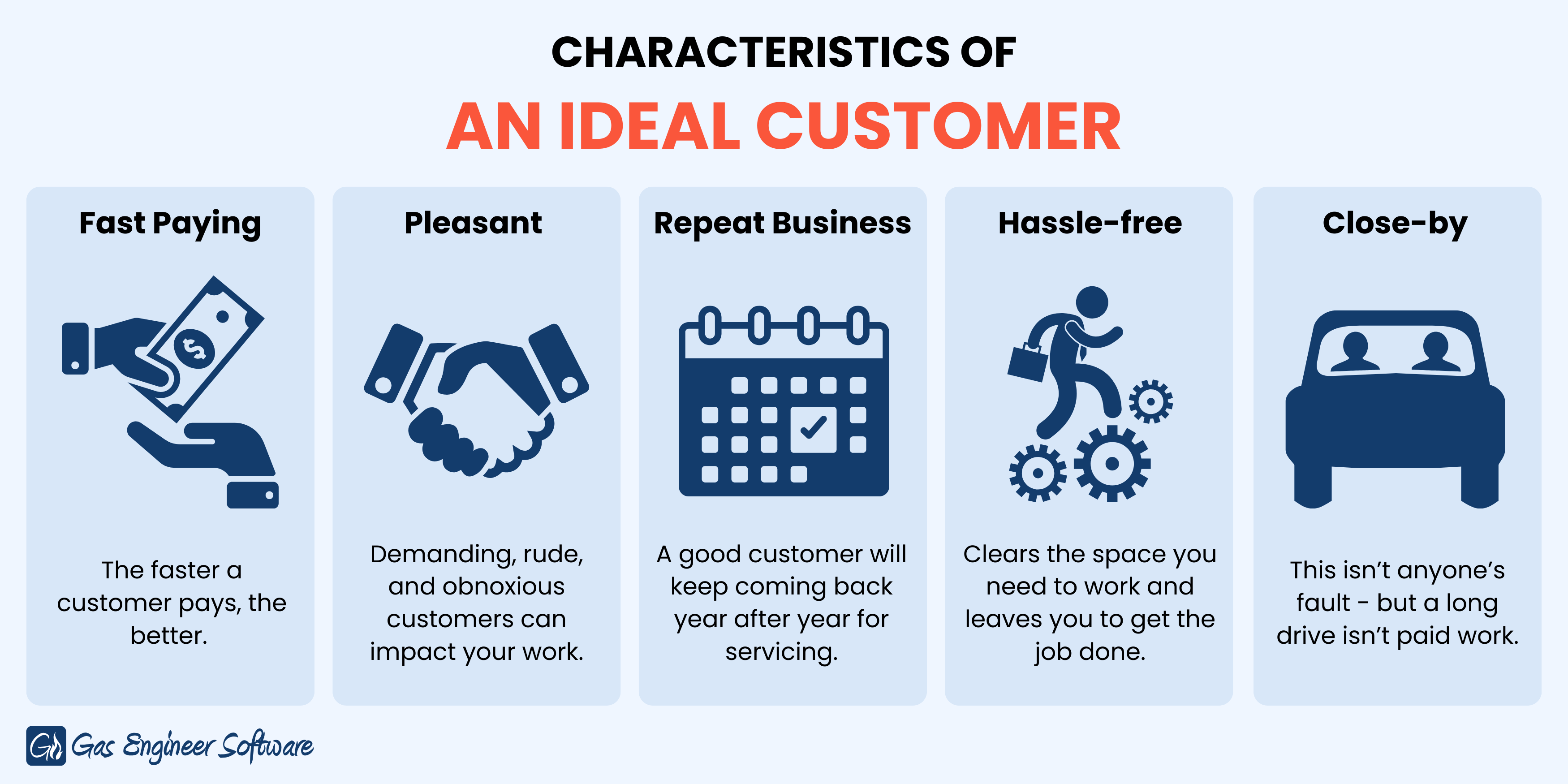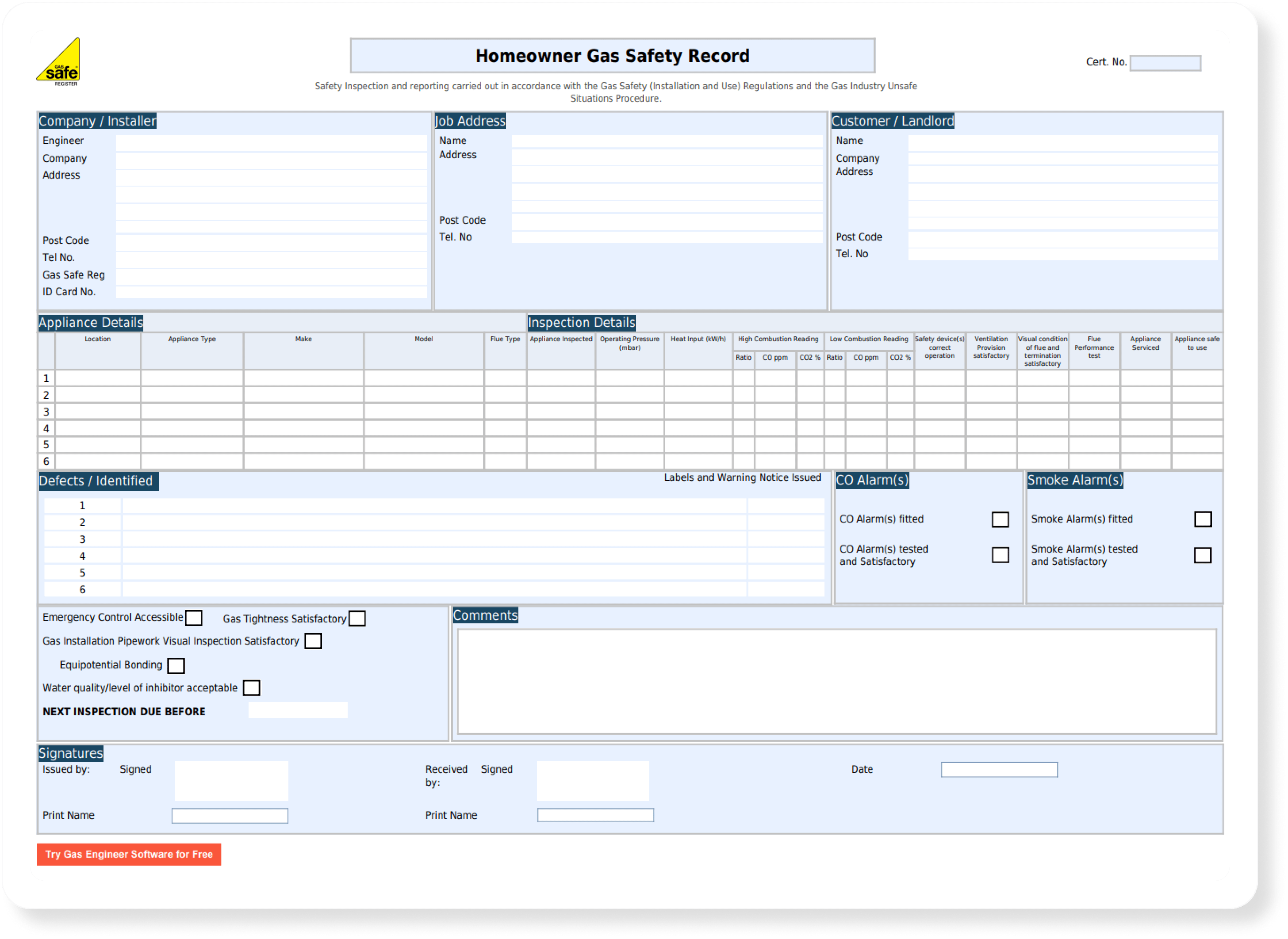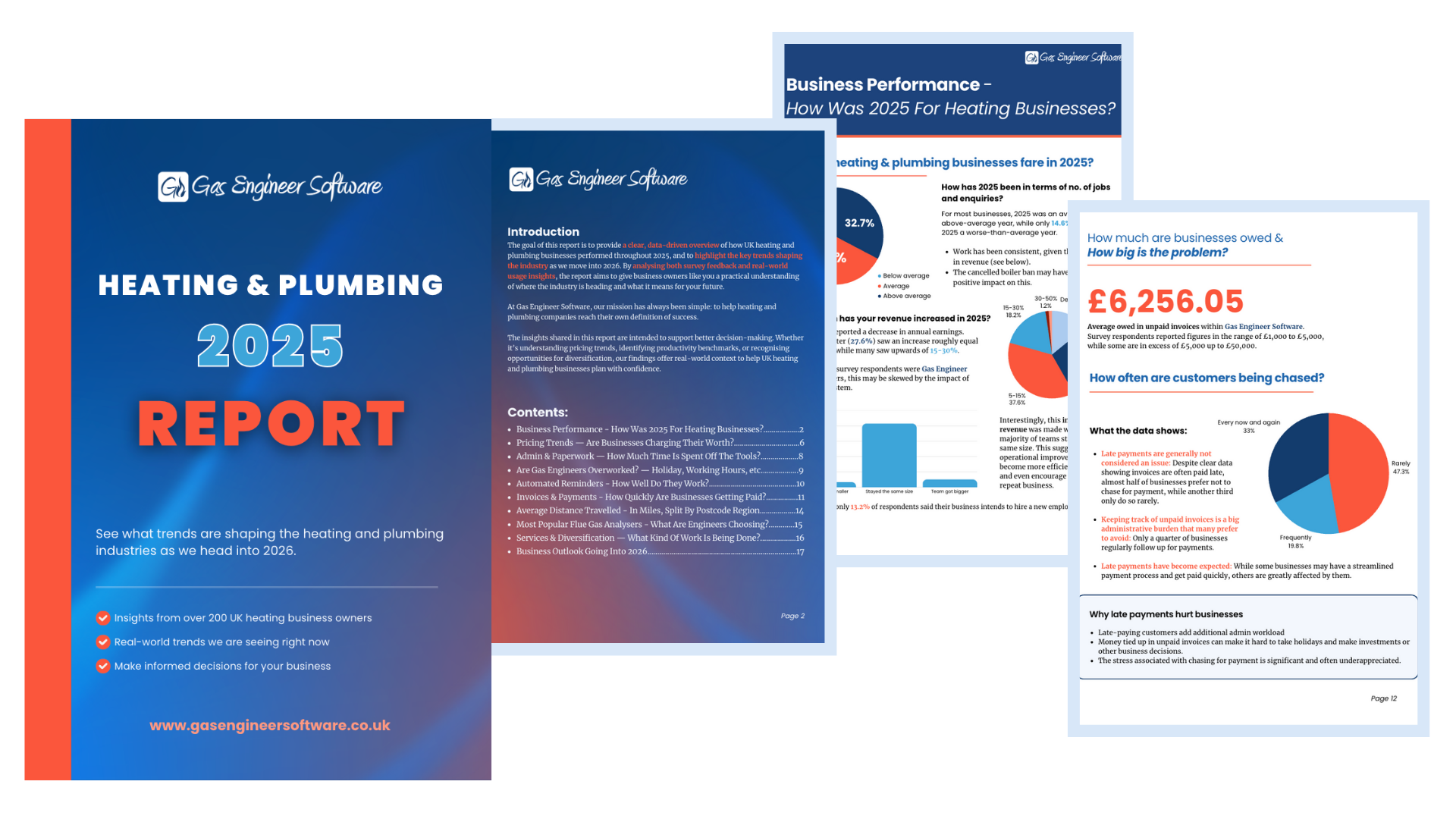Do You Know Your Ideal Customer? [+ Tips For Dealing With Challenging Customers]
![[Featured Image] Ideal customers-min Successful businesses always know who their ideal customer is](https://gasengineersoftware.co.uk/wp-content/uploads/2023/11/Featured-Image-Ideal-customers-min.png)
Have you ever thought about what makes a ‘good’ customer? Why are some customers so much easier to deal with than others, and what sets them apart from the troublesome ones?
Running a successful heating & plumbing business is no easy feat. Aside from the obvious technical knowledge you need as a qualified gas engineer, you’ve got all the tedious business work to do: taxes, paperwork, managerial and so on – but we can’t forget customer management.
In this article, we’ll break down exactly what it is that makes an ideal customer, some common red flags, and how you can use this knowledge to your advantage and run a less stressful and more successful business. But first, let’s begin with a note on why all trades business owners need to understand who they’re working for:
Why it’s important to understand your customers
Customer relationships are at the core of any service business, and a solid understanding of your market will trickle down to all other parts of your work.
If you know who your ideal customer is, you can more easily find them. They’ll make you more money, and you can avoid working with those who don’t fit the bill.
Once you reach this point, you’ll be able to run a more streamlined business that’s less stressful, turns a bigger profit, and has the potential to grow.
The 5 characteristics of an ideal customer
So what is it which separates ideal customers from the rest? Here’s a breakdown of all the major factors:

#1: Fast payments
An ideal customer will always pay quickly. Late paying is a whole topic in itself which has a hugely understated impact on trades businesses – including your heating & plumbing company.
Almost every service business is owed money from late paying customers. Far too many people disregard this as an issue as long the money makes it into your account at some point or another. For huge, multinational corporations, this might be true – but certainly not for small businesses and sole traders especially. There are two main reasons for this:
- Firstly, whether you do your own paperwork or pay an employee to do it for you, hours and hours of time is wasted each week simply by chasing and following up on customers that haven’t yet paid. This time could be better spent on more important tasks that actually contribute to the success of your business.
- Secondly, when your business relies on a steady monthly turnover, having a portion missing due to late payments can make plans (such as investing in new equipment, going on holiday, and hiring a new employee) unachievable. In the long-run, this will have a hugely negative impact on your business.
There are several things you can do on your end to get paid faster including using open banking and integrated software (read more about that here). But, at the end of the day, it’s up to your customer to pay promptly.
#2: Pleasant & Reasonable
- For starters, your own state of mind shouldn’t be undervalued. It can be hard to be friendly and offer top-tier service when you’ve just come from a horrible job – for no fault of your own. The last thing you want is for one bad job to affect all the rest that follow.
- There’s also the fact that happy customers are much more likely to provide referrals and generate income through word-of-mouth.
#3: A source of consistent work
We recently wrote an article weighing up the differences between new and existing customers – Not All Customers Are Equal. The article discusses the fact that existing customers are much cheaper to find and efficient to work with.
While not every customer can be a landlord with a string of properties to service, those who bring repeat business year-on-year are incredibly valuable.
- Whether they contact you for more work or your service reminders help book another job, you’ll spend next to nothing booking another job for them.
- An added benefit of existing customers is that you already can trust previous work has been done well, and there won’t be any surprises (since you did it).
#4: Hassle-free
There is something to be said about a customer that just lets you get the job done. This doesn’t mean they aren’t friendly or won’t chat, but rather don’t get in your way or create problems.
- An ideal customer will have the space cleared around the boiler or anywhere you need to work. This prevents wasted time on-site when your time is money.
- Some customers hang over your shoulder and question each bit of work you do. Excessive time spent explaining your work is not only annoying, but a huge waste of time.
- If your customer is requesting you to do work or modifications you deem unsafe, this can put you in a difficult position – both legally and ethically.
#5: Proximity
While a factor out of their control, how close your customers are to you does make a big difference. As a gas engineer, it’s always a good idea to minimise the time spent on the road – both for fuel and time saving.
- An ideal customer will never be too far away from your home or office and other customers. If you have to drive ages just to reach them, it might not even be worth your time doing the job.
- As well as this, the longer you spend on the road, the more likely you are to get stuck in traffic. This can then have an effect on all the other jobs which follow, too.
How to deal with challenging customers
- Always be friendly and professional. If a customer is being challenging, it will pays off to be friendly and professional. This will help diffuse situations and save your time.
- Set clear boundaries and expectations. This will save so much time in the long run if customers know what their role is. Clear payment terms on invoices, requests to clean areas you’ll work, cancellation policies, and more all help keep customers satisfied and happy.
- Offer multiple ways to get paid. A fast paying customer is a great customer. By offering several modes of payment, you’re being more accommodating to different customers and will increase the chances of getting paid early – if not on the spot.
- Use software to your advantage. It’s an uphill battle for anyone trying to run a trades business without software these days. Software can help deal with your customers in so many ways:
- Easy scheduling so when a customer changes bookings your workflow isn’t all messed up.
- Automated reminders that help encourage repeat business.
- A database of customer information so it’s easy to stay professional.
- Quick and clear quotes and invoices that can be sent on the spot so you capture more business and get paid faster.
- Communicate clearly with customers. It’s easy to get off on the wrong foot with some people, even if you’re being perfectly reasonable. It’s good practice to always communicate clearly and effectively anyway, but this will help reduce the number of hiccups and help you identify any customers which could be causing problems. Speaking of which…
- Recognise red flags before you start the job. This is a big one and will help you avoid situations with challenging customers altogether. Keep an eye out for:
- Customers that ask for unsafe or even illegal work.
- Customers that repeatedly change schedules.
- Customers who are rude over the phone.
- Customers that take weeks to accept a quote, despite numerous reminders.
- Know when to fire a customer. Sometimes, the money earned from a job is simply not worth the hassle dealing with them. In some rare situations, it can be best (even from a financial perspective) to simply stop working with these customers.
Conclusion
The better you know your ideal customer, the easier it is for your business to thrive. Troublesome customers can easily take up more of your time than they’re worth, even if it’s for the simple reason that they’re too far away from you.
As a business owner, you need to understand all these different factors so you can start working only with customers worth your time and effort. As a bonus – once you know who you’re looking for, all your marketing efforts will become much more effective.
Next steps:
If you’ve been thinking about implementing software into your workflow to save time, here’s what you can do next:
- Visit our resources centre where you'll find more articles like this one and our free gas rate calculator.
- Start a free trial to see exactly how our software works for your business.
- Watch our video demo to get an idea of how our software works. You can also book a 1-on-1 session with our customer success team for a more personalised experience.
- Know an engineer who's still using paper? Help them and us out by sending our software their way!


